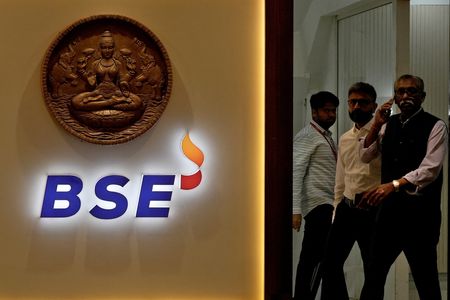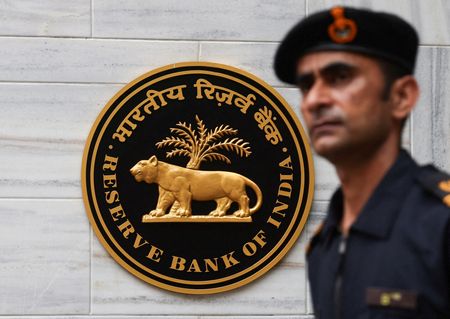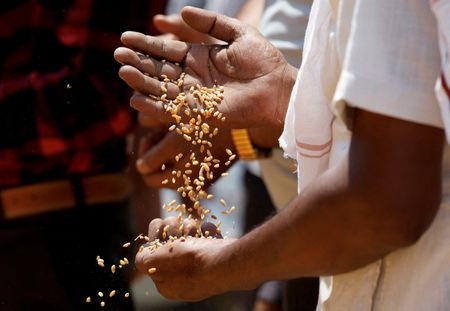By Bharath Rajeswaran
(Reuters) -India’s stock benchmarks snapped their longest losing streak in seven months on Wednesday, bolstered by gains in banking stocks after the central bank eased rules for lending to capital markets and large corporates.
The Reserve Bank of India, which maintained interest rates for a second straight meeting on Wednesday, said that banks will be allowed to fund acquisitions and raised the amount of credit individuals can take to subscribe to IPOs, as part of 22 measures to boost lending in the world’s fifth-largest economy.
The benchmark Nifty 50 index ended 0.92% higher at 24,836.3 while the BSE Sensex added 0.89% to 80,983.31. The indexes had fallen about 3.2% over the last eight sessions.
“With global trade risks still evolving, the central bank is rightly choosing to retain policy flexibility than rush into rate cuts,” said Divam Sharma, co-founder and fund manager at Green Portfolio PMS.
Fifteen out of the 16 major sectors advanced on the day, with high-weight financials and banks rising 1.4% and 1.3%, respectively, while the private bank index advanced 2%.
The heaviest-weighted stocks on the indexes, HDFC Bank and ICICI Bank, rose 1.5% and 1.8%, respectively.
The lending rule changes are “a significant positive for banks as it enables them to recapture flows that had increasingly shifted to structured credit players,” said Chanchal Agarwal, chief investment officer at Equirus Family Office.
Expectations of an uptick in consumption firmed after New Delhi approved 100 billion rupees ($1.13 billion) towards pay hike for federal government employees.
Among other stocks, Tata Motors climbed 5.6%, logging its best session in over 14 months, after setting a record date for the demerger of its commercial business and projecting a robust growth outlook.
The broader small-caps and mid-caps rose about 1.1% and 0.9%, respectively.
Indian markets will be closed on Thursday for a local holiday. Trading will resume on Friday.
($1 = 88.6840 Indian rupees)
(Reporting by Bharath Rajeswaran in Bengaluru; Editing by Janane Venkatraman and Mrigank Dhaniwala)











